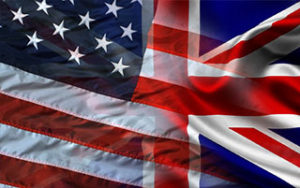For almost 3 years now, the US and the EU have been trying to negotiate a free trade agreement – the very kind that is becoming increasingly unpopular and might have played a role in the Brexit vote. So far the parties have failed to agree to technical issues, regarding mostly to phytosanitary regulations and technical barriers to trade – TBT’s. The EU is opposed to how the US allows for hormone-treated beef and chlorine rinsed chicken.
These objections sound an awful lot like the grievances cited by the Brexit campaign a few months ago. It seems that harmonization in terms of regulation can only reach so far, and small technical issues like those, can bring a whole treaty down. But now that Britain is on its way out of the EU, and there is a backlash against free trade agreements, if the US-EU talks fail, Britain could swoop in and strike a deal with the US by itself.
Brexiters could gladly point towards a potential agreement of this kind as a bilateral agreement between equals, one that will not see foreign workers flooding the streets of London, yet would boost bilateral trade with the largest economy on earth. It seems independence from the EU has its advantages even in terms of negotiating power. Britain will never have the economic clout of the EU, but it will now be free from its rigidity. Britain’s newfound ability to negotiate by itself and for itself will give it the opportunity to get the best deal for its citizens.
Many would say that these agricultural practices that the EU is trying to fight, could also scuttle a potential US-GB agreement. They might, but then again, Britain does not have to ask the rest of the EU. Now only the British citizens will have a say, and logic might prevail on that side of the English Channel. After all, the practices that the EU is trying to impose on US agricultural production already affect millions of EU citizens that travel to the US, but none of its well-funded institutions is giving out travel warnings in 20 languages, asking Europeans not to eat beef or chicken in the US while they are there because of the way American farmers are treating their beef and poultry.
In any case, Britain will have to wait in the sidelines. After all, the US-EU FTA is still being negotiated so there is still a chance that the EU will be able to impose on the US the same kind of draconian regulations that Britain just broke away from, right?






